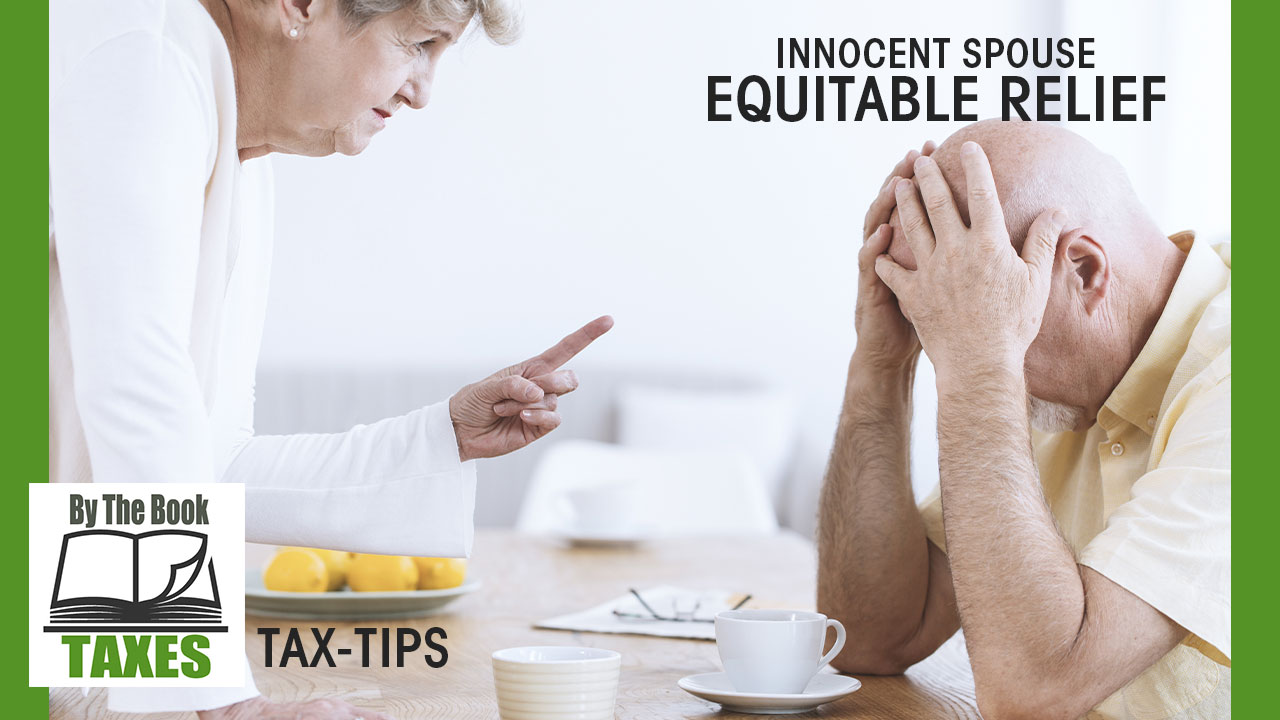INNOCENT SPOUSE RELIEF – EQUITABLE RELIEF
Last week I gave an overview of the “Separation of Liability” option of an Innocent Spouse. filing. That article is linked here.
This week I will go into more detail on the third of the three types of Innocent Spouse. filings, known as “Equitable Relief” covered by Internal Revenue Code Section 6015(f).
My firm, By The Book Taxes, located in Norwalk, CT specializes in income tax preparation for individuals, families and self-employed people. By the Book Taxes also helps clients resolve their tax debts by preparing and filing Installment Payment Agreements, Offers-in-Compromise, Currently Not Collectible and Innocent or Injured Spouse applications.
Due to the legal concept called “joint and several” liability, each spouse is legally liable for all the tax owed on a joint return even though the income and resulting tax liability may be mostly or completely attributable to only one of the spouses.
One of the most important requirements for an Innocent Spouse. filing is that a “valid joint return” was filed voluntarily with the consent of each spouse without threats or duress.
The other requirements in a 6015(f) Equitable Relief filing are:
- The requestor must not qualify for relief under Internal Revenue Code Sections 6015(b) or 6015(c)
- The tax liability exists due to under withholding (deficiency) or non-payment
- Equitable Relief filing must generally occur within ten years of tax assessment
- Refunds are available
- No fraudulent asset transfers between spouses prior to filing
- The requesting spouse did not knowingly participate in filing a fraudulent joint tax return
There are seven (7) elements that the IRS considers in an Equitable Relief filing before making a determination as to whether it would be “inequitable”, causing an economic hardship, to hold the requesting spouse liable for the underpayment of tax.
They are:
- Marital Status
- Economic Hardship
- Knowledge or Reason to Know
- Compliance with Income Tax Laws
- Legal Obligation to Pay
- Significant Benefit
- Mental or Physical Health
Depending on the facts associated with these elements in each filing, these items could either favor granting relief, be neutral or be against favoring relief.
In a successful filing, the IRS will allocate the tax liability based upon the income of the two spouses and the requesting spouse will only be liable for the tax associated with their portion of the income. For 6015(f) relief, the spouses can still be married.
If you have years of unfiled tax returns or owe money to the IRS, please call me. I can help.


Comments(0)